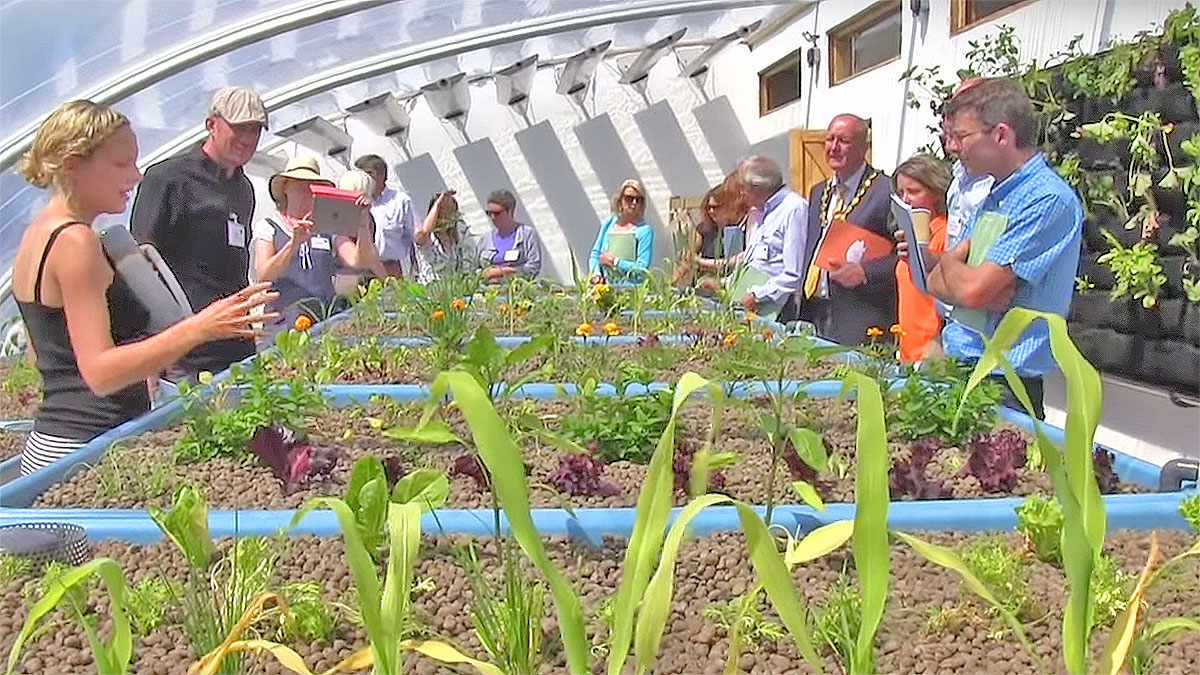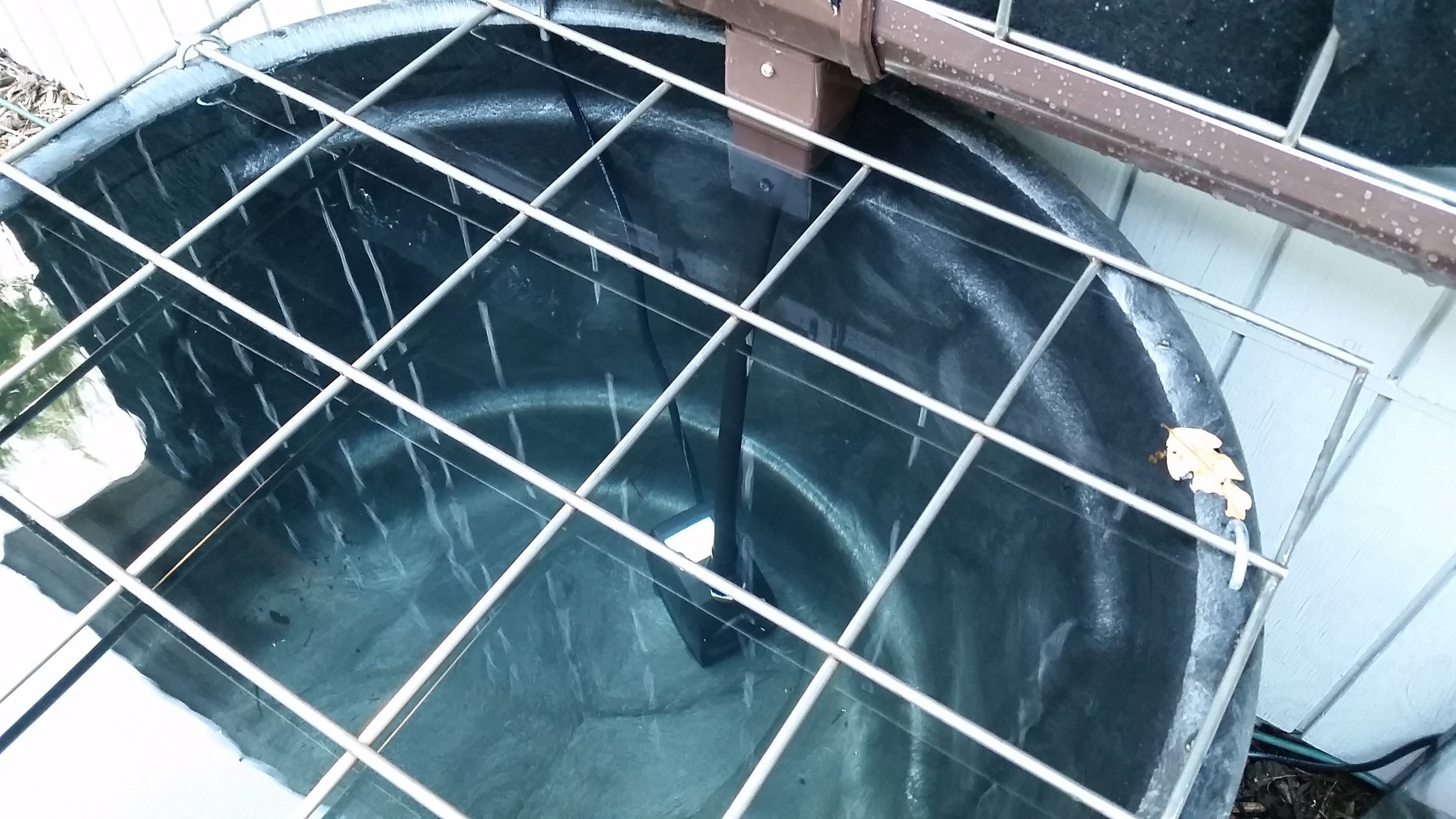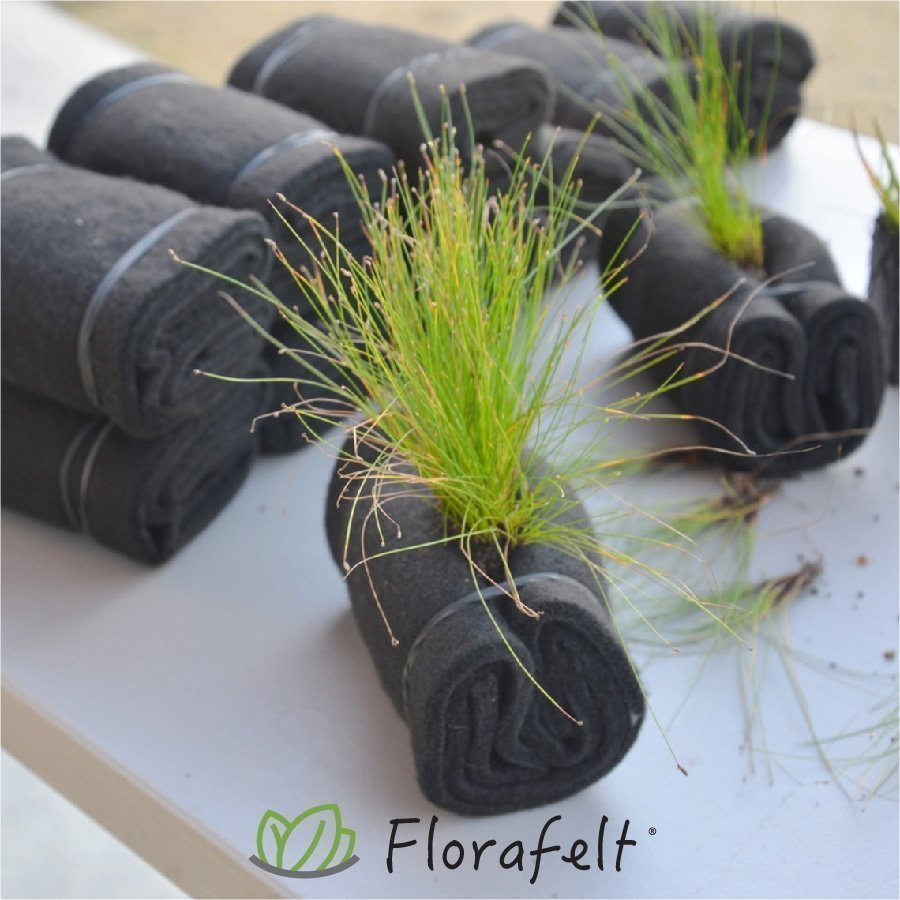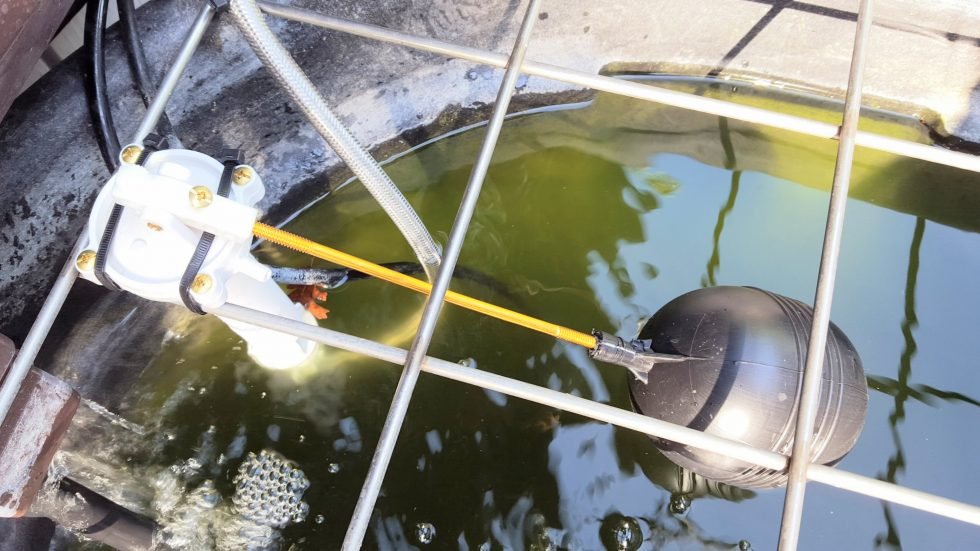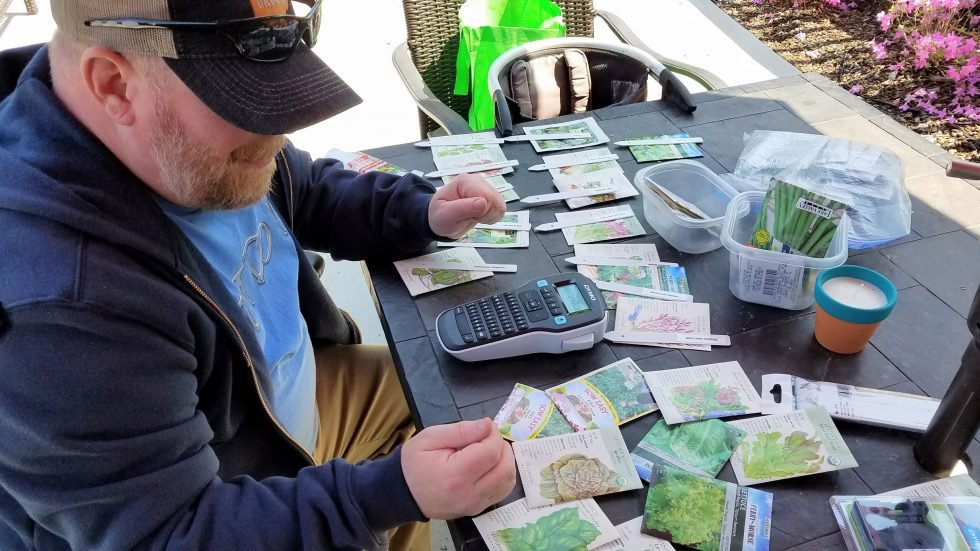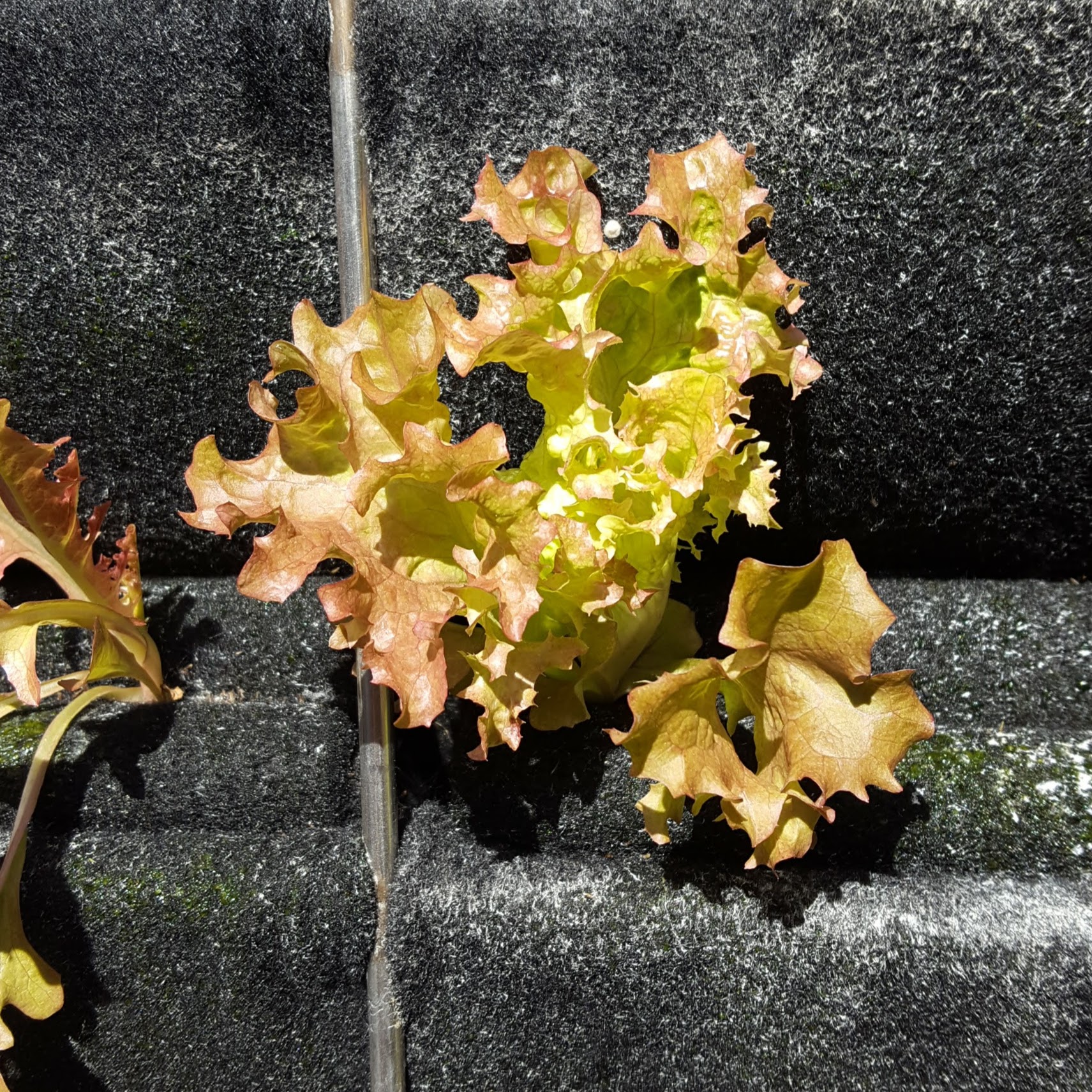Florafelt Aquaponics Fit for a King
King Charles learns about growing organic food with Florafelt hydroponics and live fish at the Humble by Nature Aquaponic Greenhouse in Wye Valley, UK.
Humble by Nature Aquaponic Vertical Garden
A cute little cafe in England's Wye Valley uses vertical gardens and aquaponics to deliver fresh organic vegetables and greens for its customers.
This sustainable food experiment is called Humble by Nature after its founder Kate Humble who works with talented gardeners willing to take on this visionary challenge.
Fish tanks provide fertilized water for all the plants in the greenhouse.
A vertical garden component is featured within the greenhouse to create additional growing space.
Alongside the flooded growing beds, Florafelt Pocket Living Wall System adorns the Northern wall where tomatoes and other vegetables provide year-round food.
The cafe serves delicious meals made mostly from food produced from the greenhouse and nearby farms.
The learning farm offers classes on home-grown agriculture and provides adorable overnight cabins.
Intern Builds Vertical Garden, Inspires Green Living
Angelica Rocha inherited her grandfather's green thumb to build her first green wall, complete with 50 fish! The minnows form a vital link in her new aquaponics vertical garden at the EcoCenter on San Francisco Bay. This Berkeley student is on a fast track to make the world a lot more green, so meet her now and say you knew her when.
Just completed in December at the EcoCenter at Heron’s Head Park, the 84-pocket living wall is Angelica’s internship triumph. “Kids love it!” she says. “I think the EcoCenter is happy to house such an amazing piece of living space.”
The nutrient-rich water from the fish tank feeds the plants, creating a closed cycle system that is a perfect example of sustainable urban living ─ what the EcoCenter is all about.
Eternally curious, Angelica had experimented at home with vertical gardens. Since she was so interested in them and horticulture, "The EcoCenter project spoke to me,” she says.
Perhaps also because her grandfather and uncles were agriculture and landscaping professionals in Mexico before coming to the U.S. She dove into learning about Plants On Walls and Florafelt, too. “I was amazed at the projects. Each one is absolutely beautiful. I was so impressed, I had to learn more.”
Angelica arrived at the EcoCenter through a course, Applied Research in Sustainability, at City College of San Francisco. She now studies environmental management at UC Berkeley, after earning her bachelor’s degree last year in recreation, parks and tourism administration at San Francisco State University.
An amazing community and education center, the EcoCenter brings sustainable power, water and wastewater systems to life. It’s the first LEED Platinum - Zero Net Energy Building in San Francisco. Here you’ll discover a living roof, rainwater harvesting, constructed wetlands and much more.
Angelica helped run the popular Science Saturday programs that foster public interaction, and gave tours that required deep knowledge of San Francisco's watershed, Eco Center's wastewater treatment, biomimicry, environmental design and local wildlife.
For the aquaponics living wall, Angelica worked with Florafelt CEO Chris Bribach, who advised her at each step. Kids and adults alike had fun root-wrapping the native plants.
Assembly of the Aquaponic Vertical Garden
If you've ever built an Ikea bookcase, the idea is the same: all parts are labeled and ready to assemble.
The patented Grow Bun allows water to reach every plant, wicking moisture into the felt where the roots grow while keeping the front dry and drip-free.
“I believe vertical gardens are the best solution for greening the urban environment. They require little space and make a big impact inside and outside,” she says. “They benefit the environment and ourselves ─ improving air quality, reducing particulate level, reducing stress, increasing productivity, and more.
“The EcoCenter is right on the waterfront of San Francisco Bay, one of the most invaded watersheds in the world. I wanted to bring in marsh plants, similar to ones you'd see outside, as a talking point for how our watersheds filter themselves.”
What’s next for this intrepid intern? Big goals, of course: making her mark in green infrastructure and environmental planning, and adding more vertical gardens to the world. She also plans to complete a 20-day hike along the John Muir Trail from Yosemite to Mount Whitney.
Aquaponic Vertical Vegetable Garden
Led by Kate Humble, Aquaponics UK are providing technical expertise to explore sustainable food growing techniques using aquaculture, farming fish, and hydroponics with few inputs and many, high value outputs.
Florafelt Wall Planters are employed to grow a variety of vegetables at a sustainable future farming concept greenhouse. The entire vertical garden system was supplied by Eden Green Walls for the Humble By Nature's Solar Aquaponic Greenhouse in Wye Valley, UK.
Stephen Schofield of Eden Green Walls. Humber By Nature. Solar Aquaponic Greenhouse, Florafelt System
Kate Humble and Aquaponics UK, Humble By Nature
Led by Kate Humble, Aquaponics UK are providing technical expertise to explore sustainable food growing techniques using aquaculture, farming fish, and hydroponics with few inputs and many, high value outputs. The goal is to recycle the nutrient rich water into soil-less vegetable production filtering the water in the process so it can be constantly reused.
This passive solar greenhouse is designed to house a productive, edible ecosystem which is also combined with a variety of other complementary farming techniques such as producing fish and poultry food from insects, growing mushrooms from used coffee grounds and growing poultry, fed from by-products of the system.
Stephen Schofield of Eden Green Walls. Humber By Nature. Solar Aquaponic Greenhouse, Florafelt System
Florafelt Aquaponics Growing Vertical Greens
We created test gardens in Sonoma, California to develop an aquaponics system growing a variety of leafy greens with many different types of lettuce, kale and others.
What is Aquaponics?
Aquaponics is a way to grow vegetables using water circulated from fish tanks. This ‘closed loop’ system is water efficient and can provide multiple food sources from both the fish and plants.
Test Garden
We created test gardens in Sonoma, California to develop an aquaponics system growing a variety of leafy greens with many different types of lettuce, kale and others. Here are the details of our discoveries and what we found to work best. Overall we were were pleased with the simplicity of the system. At first we started with electronic monitoring and complex timers but later abandon the complexity and just let the system run constantly which proved to be best for the overall system, including less wear on the pumps and better filtering for the fish.
Aquaponics Ecosystem
For our aquaponics installation we grew a variety of leafy greens from sprouted from seeds. We used a hearty breed of goldfish to keep it easy for our initial runs. The goal was to build up the natural biology in the system to create a balanced ecosystem for both the plants and fish. The water system runs continuously to keep the plant materials irrigated and the water oxygenated for the fish. A pump that is always on is more reliable because it prevents pump cycling and extends pump life.
Florafelt Pro System Design
The aquaponic system is prepared for another year of planting. Florafelt Pro system units are mounted above 100 gallon tanks. This siThe Florafelt aquaponic growing system is prepared for another year of planting. Florafelt Pro system units are mounted above 100 gallon tanks. This simple system provides a copious amount of vegetable and fish harvests.
Supports and Grids
Struts are mounted to the building facade. Bent wire stainless steel grids are clipped to the struts using strut clamps.
Water Shields
Plastic water shields are inserted into the grids to provide waterproofing.
Water Tanks and Protective Covers
Large 100 gallon tanks are placed below each set of grids that cover an area 8 feet wide by 4 feet tall. A gutter directs water into the tank. A section of grid is hinged and locked on the top of the tank for child safety and to keep rodents out. Built-out tank surrounds would make this a much more attractive installation. For this test garden, these were adequate.
Recirculating Pump and Auto Refill with Water Filter
Irrigation Tubing
Standard 5/8″ irrigation tubing is used to circulate water through the system. Large holes are placed above each felted column. Only one line of tubing across the top. Tubing ends are stopped using the folded method.
Grow Buns
Florafelt Grow Buns are pre-folded and held together with rubber bands. Each bun creates a plantable furrow for seeds.
Make a Grow Bun
Use Florafelt Grow Strip to make a grow bun that you can place in each pocket.
Never Use Soil
In aquaponics, soil is fatal for fish. Start your plants using seeds or starts with the soil washed off of roots.
Water Pump
A simple pump sits in the tank and tubing is run up and through the gutter downspout.
Automatic Water Filler
Water levels are maintained with a toilet filler.
Continuous Water Flow
Water flows through the system and back into the tank. This simple installation uses minimal drain trays and tubing.
Water Filter Helps Balance pH
An inline water filter is used to remove most of the calcium carbonate from the municipal water system. This helps to keep calcium deposits low and water pH in balance. Simple hose connections keeps the installation simple and easy to modify.
Fish are Added
Goldfish are added to the tank after the system ran for a month.
Water Usage
A water flow meter is added to determine how much water was added to the system. Green plastic was used to wrap the main valve to prevent accidental water shutoff. The combined systems of 32 square feet of high density planting area used on average 17 gallons per week. This includes the evaporation from both of the 100 gallon tanks. There were a total of 128 plants in this system.
Seed Labeling
A wide variety of lettuce and kale are tested in the system. Labels are made for each test section.
Seed Planting
Seeds are planted in the Grow Bun furrows and labels are added.
Loads of Greens
After a couple months the seeds sprouted and grew into healthy plants.
Maintenance
The system is very easy to maintain. Very little maintenance is required to keep it going. The fish need to be fed daily and the greens harvested. At the end of the season large plants are removed at the stem. The roots are allowed to remain in the felt. These decay and begin to build organic matter in the system. The following season new seed are added to the system to repeat the cycle.



